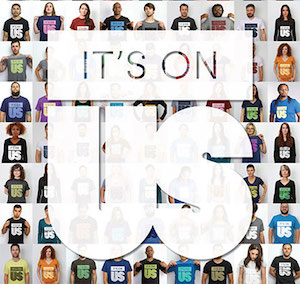This is a tough election year for survivors of sexual assault.
Not only has one of the candidates been caught on tape bragging about sexual assault (“I just start kissing them. It’s like a magnet. Just kiss. I don’t even wait. And when you’re a star, they let you do it. You can do anything. Grab them by the pussy. You can do anything.”- Donald Trump, 2005), which then prompted Anderson Cooper to ask him about it directly in the second debate (“You described kissing women without their consent, grabbing their genitals. That is sexual assault,” Cooper said. “You bragged that you have sexually assaulted women. Do you understand that?”), but then GOP politicians who for some reason still support Trump continued to deny that Trump is describing assault (e.g. Jeff Sessions of Alabama: “I don’t characterize that as sexual assault. I think that’s a stretch. I don’t know what he meant”).
Just so we are all on the same page here–and in case Jeff Sessions has the pleasure of reading this–let’s review some important definitions.
- Sexual assault: unwanted physical contact of a sexual nature that occurs either without consent of each participant or when a participant is unable to give consent freely
- Sexual exploitation: sexual misconduct that occurs when a person takes unjust or abusive advantage of another and the behavior is not categorized as sexual assault; examples include web-cam videotaping of a roommate undressing without the person’s knowledge and consent
- Sexual harassment: unwelcome conduct of a sexual nature when submission to such conduct is made either explicitly or implicitly a term or condition of the person’s employment or education
For survivors of sexual assault, the denial and downplaying of sexual assault by Trump, Sessions, and others is all too familiar. In a HuffPost piece, Emma Gray explains that after an experience of sexual assault, many women are unwilling to come forward because they doubt their story will be believed. One after another she documents how on talk shows and Twitter people have engaged in victim-blaming and shaming after more of Trump’s victims came forward this week. [And this just in, today at a rally Trump mocked victims of sexual assault.]
In a gut-wrenching testimonial, Jessica Nichols Ringsred wrote in the latest Notre Dame Magazine about the calculation she made after she was raped, when she asked herself what it would cost her to report, and decided at the time that it was not worth the risk. Only 15 years later has she realized the cost of her silence. Yet she still lives with the nightmares (“I have not taken a shower in 15 years without being dragged back into the shower I spent hours in after I was raped, trying to get clean. I am terrified of the dark. I am terrified of being alone. I am terrified of men. I am terrified of too many things. My rape lives with me. It follows me like a black dog with familiar fangs and a quiet, violent permanence through my days and through my nights, into every shower, into my most intimate moments”). Trump’s victims now have to endure the news coverage of his candidacy, which is surely providing moments of trauma triggers. All of us need to be aware that trauma impacts the brain in very specific ways, overloading the emotional circuits in the brain’s control center. After trauma, the victim may have intrusive thoughts, physical reactions to triggers, difficulty concentrating, sensitivity to sound or sensory experience, feelings of severe isolation or that no one understands, constant fear, depression, fatigue, trouble sleeping, reliving events through flashback, and feelings of shame. We need to be people who comfort, listen, and offer support. At least Michelle Obama gets it and is a champion for supporting survivors.
In a powerful essay for NCR, Jennifer Mertens argues that news coverage in this election cycle is exposing the rape culture that has become normalized in American culture, and which is devastating for young women. She writes of her own students: “My students need a faith community that stands with them and for them. They deserve a church that unconditionally champions their God-given dignity.” Amen.
All of us need to be better informed about how to respond to survivors of sexual assault. With deep thanks to my university’s Campus Assault Resources and Education (CARE) team, I offer the following advice:
If someone comes to you and says she has been assaulted:
- Listen.
- Remain calm.
- Believe her.
- Don’t say “I would have… I wouldn’t have…”
- Avoid language that blames the victim (i.e. What were you wearing? Were you drinking?)
You can say:
- Thank you for sharing that with me.
- What is important now is how I can be here for you.
- You are not alone.
- What happened is not your fault.
- No one deserves to be assaulted.
- I care about you.
Normalizing bystander intervention, compassionate attention to victims, and support of those who speak out are absolutely essential now and in to the future. For those survivors who’ve been retraumatized by this election cycle, support from friends and loved ones is important and urgent.
[For immediate help, please visit RAINN‘s hotline.]





Thank you Emily.
When are the U.S. Bishops finally going to speak out on this appalling abuse of women by Trump ?
Or are too many of them in bed with the Republican Party?
There is teaching moment here that the U.S. church is missing. An opportunity to speak out for the gospel imperative of treating women with dignity and respect.
God bless
Thanks, Emily. I am so glad you wrote this. I think the point about believing the person who tells you of sexual assault is so important. The important thing in such a moment is to respond compassionately, NOT put potential victims on the defensive.